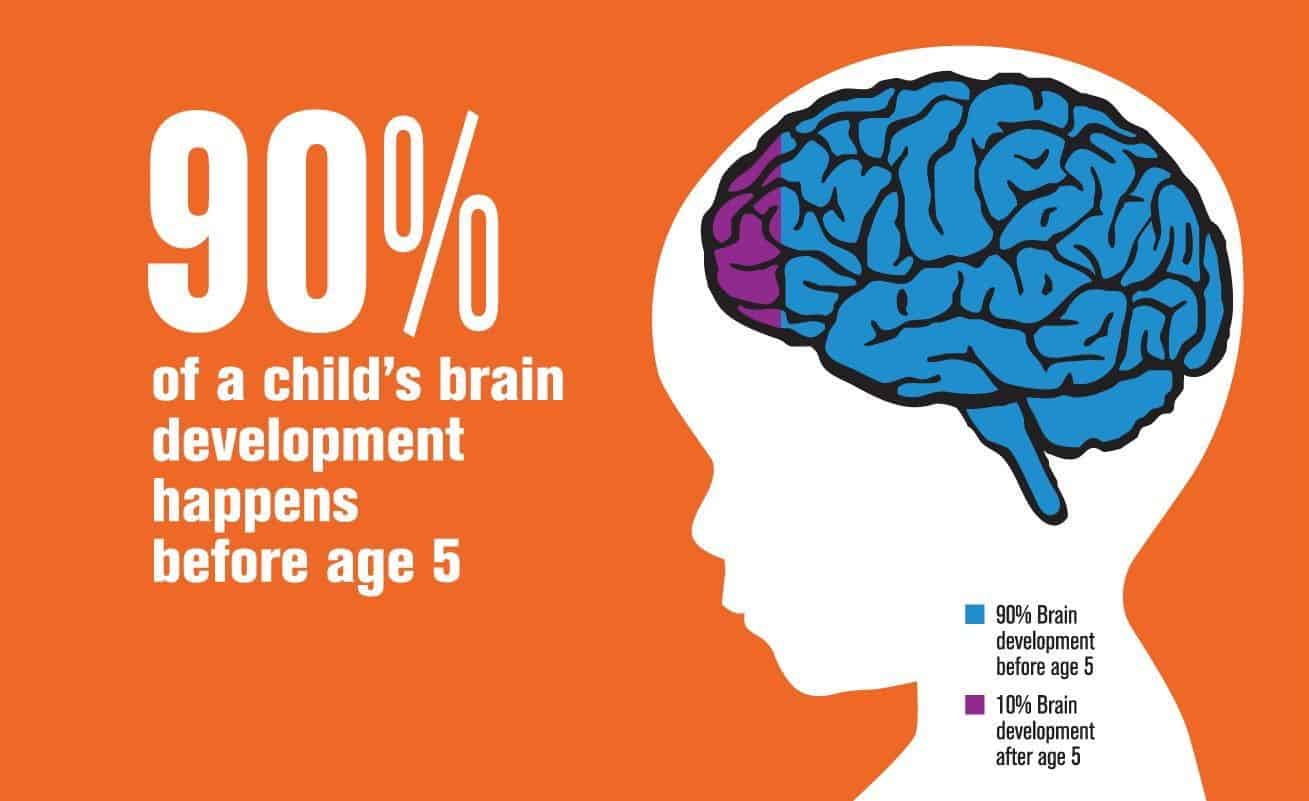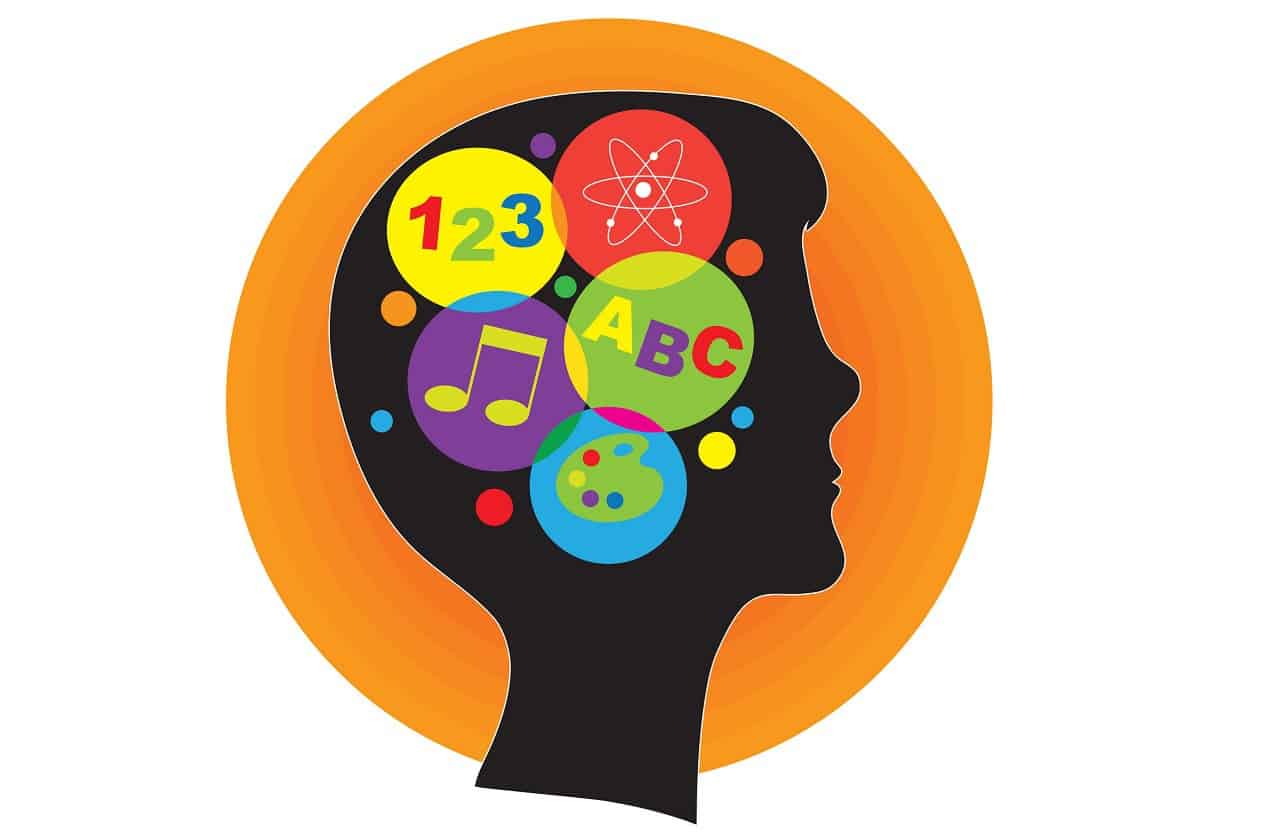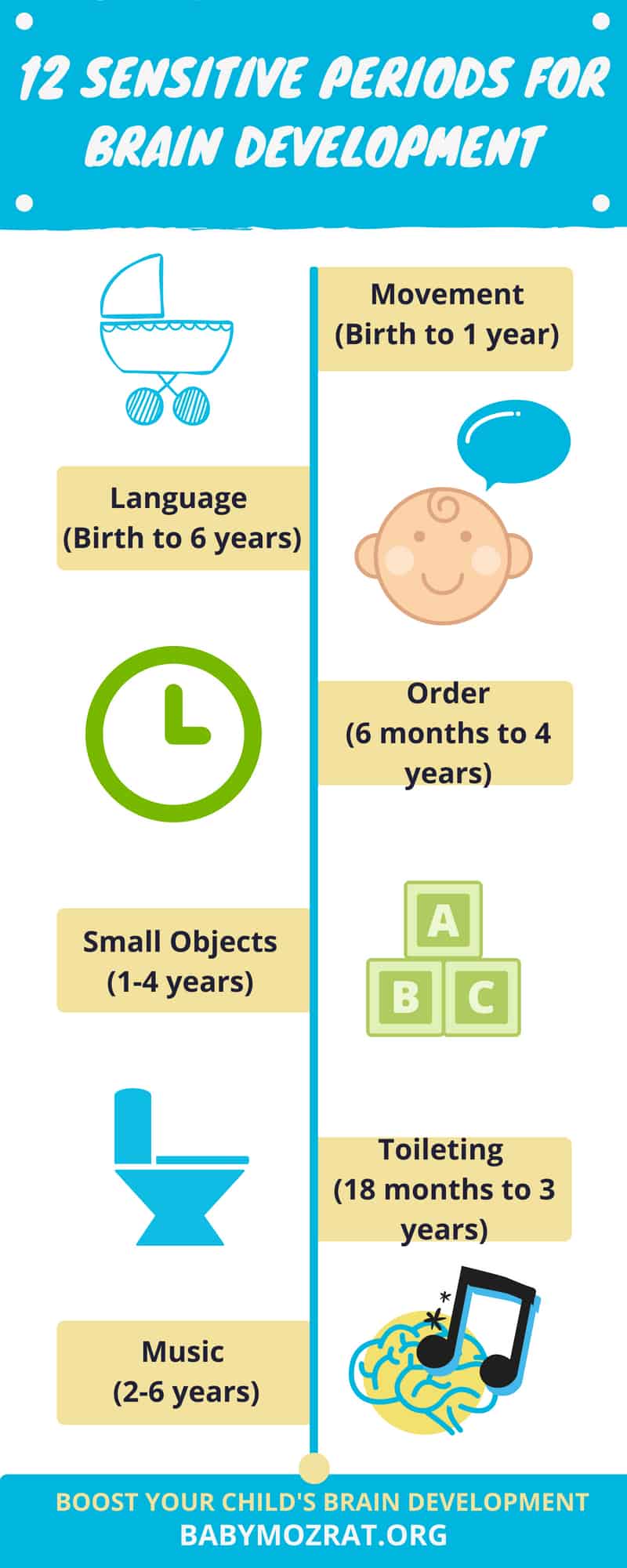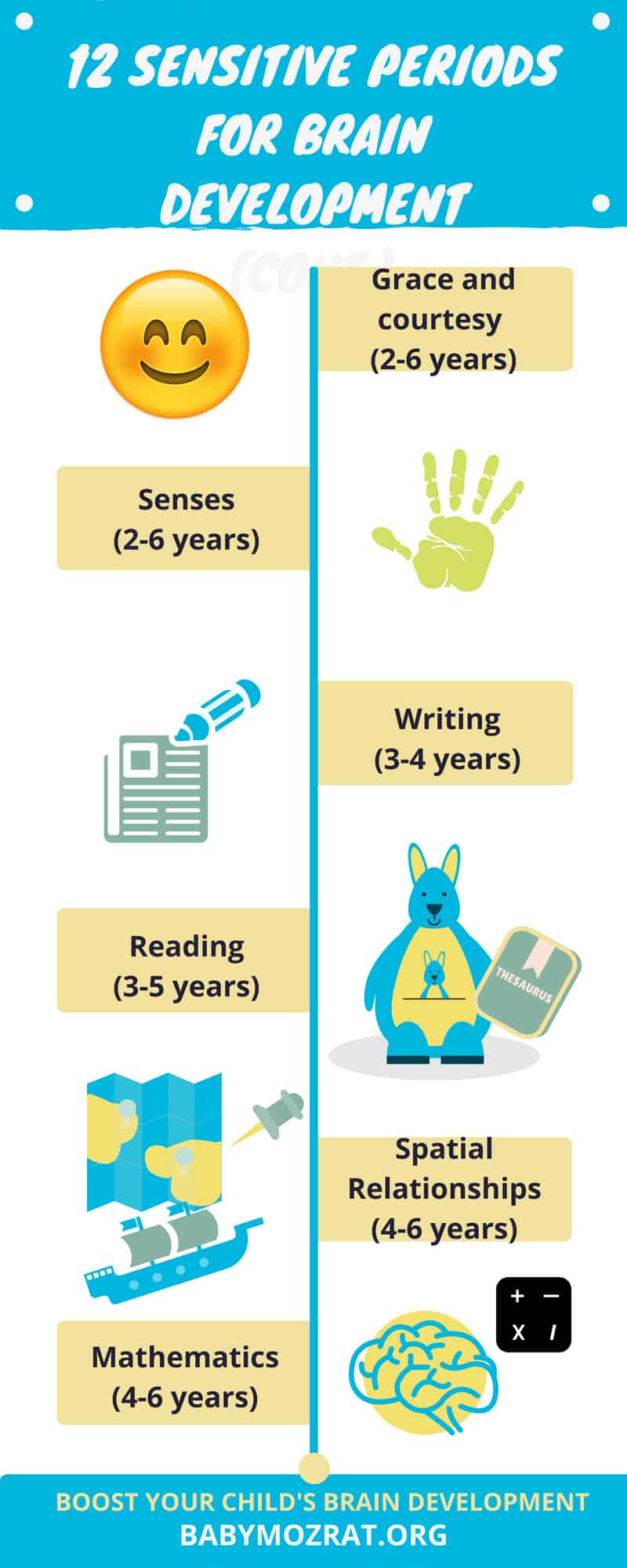
Brain Development in Children – 12 Sensitive Periods You Must Not Miss
Sensitive periods for brain development in children
Children undergo rapid brain development from birth through age 6. During this period, they pass through various “sensitive periods” in which they become intrigued and absorbed by particular aspects of their environment. During a sensitive period, children can learn new things, master new skills, or develop aspects of their brain’s abilities almost unconsciously. These sensitive periods, however, are transitory states. Once children have mastered the skill or concept in which they were absorbed, the sensitive period seems to disappear; so if children are not exposed to the right experience and stimulation at the right time, the opportunity to learn will pass. For example, during the first few years of life, children are in the sensitive period for language. That’s why it is relatively easy for children at age two and three to learn one or more languages, but much more difficult for most of us as adults.
Some of these opportunities don’t come twice. It is therefore especially important that we as parents understand this process because each stage represents an opportunity which, if taken advantage of, can profoundly influence our children’s brain development.

What are Sensitive Periods?
Montessori identified 12 different sensitive periods occurring from birth through age six. Each one refers to a predisposition for children to acquire specific characteristics. Scientists have shown that experiences during sensitive periods of development change the circuitry of the brain. Patterns of connections are made that become part of the brain’s “stable landscape” – which is the foundation for future learning and behavior. Of course, the beginning and end of each sensitive period will vary from child to child, so we need to watch carefully to respond to our children individually. If we can recognize and take advantage of the sensitive periods through which children pass, we can become more effective in supporting their learning and brain development.


The 12 Sensitive Periods (Birth to 6 Years)
These sensitive periods/stages are also called “periods of power”. Given the right stimulation at the right time, children are able to learn almost unconsciously. Therefore, these periods should be encouraged, not just for brain development, but also for a child’s happiness.
1. Movement (birth to 1 year) This is an exciting period for both babies and parents! Your baby’s random movements become coordinated and controlled as he/she learns to grasp, touch, turn, balance, crawl, and finally, walk. During this period, make sure you provide a safe place for your baby to move around and all the time he/she needs to practice.
2. Language (birth to 6 years) Starting with practice coos and sounds, your baby progresses from babble to words, phrases, and then sentences. During this period, it is best to speak to your baby in clear language, read out loud regularly (no less than 20 minutes a day), and allow him/her to his/her needs.
3. Order (6 months to 4 years) This stage is characterized by your child’s love of routines and a desire for consistency and repetition. Everything must have its place. During this time, it is also important to have external order and an appropriate place for everything as this helps the child establish their internal order.
4. Small objects (1 to 4 years) Your child will adore handling small objects and be noticing tiny details as eye-hand coordination becomes increasingly refined. To properly prepare the environment one may get down to knee level and walk it to see the details yourself, fix what needs to be fixed so as the child may not be distracted when doing work. When a child may see something in disorder this may affect their level of concentration.
5. Toileting (18 months to 3 years) As your child’s nervous system becomes better developed and integrated, he/she will become able to gain control of their bladder and bowels. It’s time to potty train (finally)!
6. Music (2 to 6 years) When music is part of his everyday life, your child will show spontaneous interest in the development of pitch, rhythm, and melody. Playing engaging children music and classical music has been proven by numerous research to develop your child’s musical sense and enhance brain development.
7. Grace and courtesy (2 to 6 years) Your child will love to imitate polite and considerate behavior leading to an internalization of these qualities into his/her personality. This entails the parents to be using their manners with the children and other adults that may be around.
8. Senses (2 to 6 years) Sensory education begins at birth, but from two your child will be absorbed by sensorial experiences like sights, sounds, tactile sensations, tastes, and scents. It is the duty of the parent to give the child opportunities to explore their environment and experience or stimulate their senses and not always be prevented with minor hygiene or safety concerns.
9. Writing (3 to 4 years) Surprise! Writing actually precedes reading and beings with attempts to reproduce letters and numbers with a pencil and paper.
10. Reading (3 to 5 years) Children show a spontaneous interest in symbols and the sounds they represent – soon they are sounding out words. Phonix (learning how to decode a word using letter sounds) is a common way for Montessori children to learn how to read.
11. Spatial relationships (4 to 6 years) As children develop an understanding of spatial relationships, they begin to work out complex puzzles.
12. Mathematics (4 to 6 years) Start math early! Find ways to give children a concrete experience of math in the period of sensitivity for numbers and quantities. This includes counting, the meaning of numbers, the concepts of addition and subtraction, etc.
Love Baby Mozart?
Follow us on Social Media!
Subscribe today to get exclusive advice on our latest parenting tips, brain development tools, music and songs updates, and much much more! Remember, it's 100% FREE!


